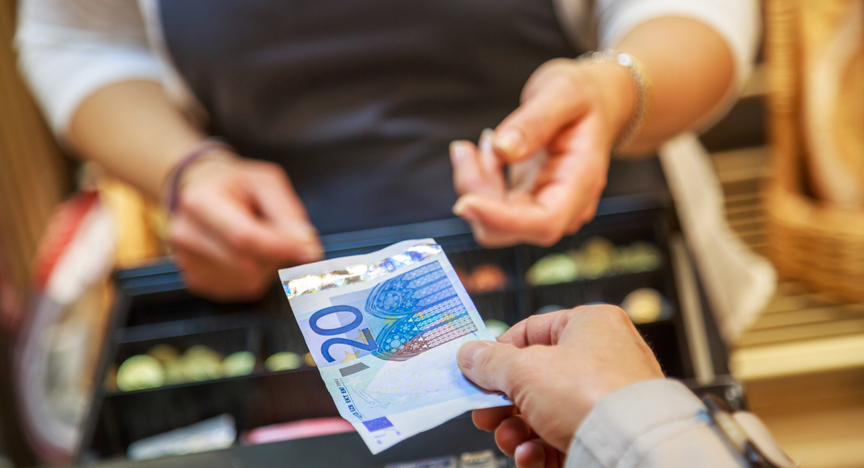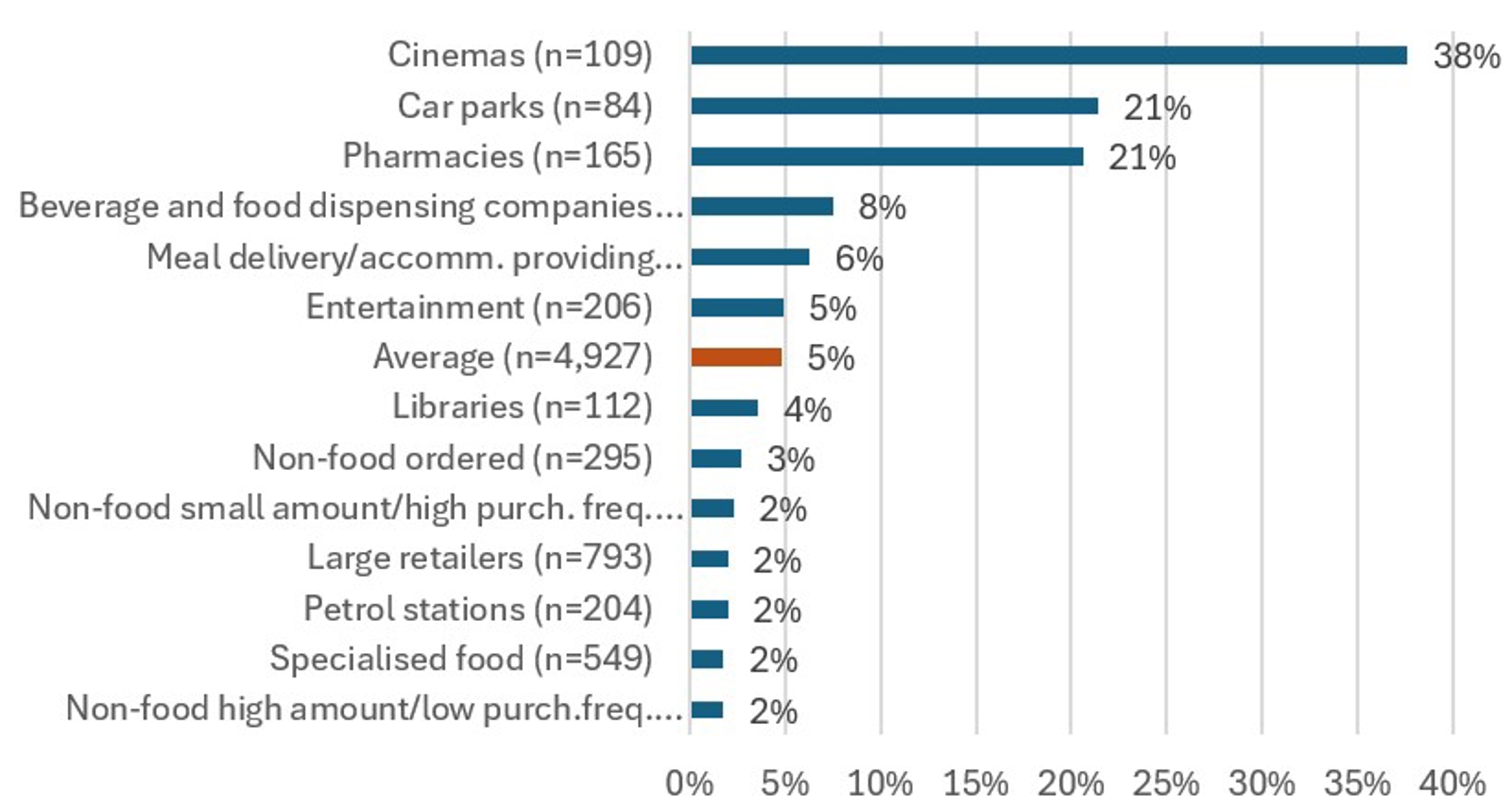Cash acceptance in the Netherlands slightly down
The number of ‘PIN only’ points of sale has increased slightly from 4.5% in 2023 to 4.8% in 2024. The increase is most noticeable in the larger cities, and particularly at pharmacies and cinemas.
Published: 12 May 2025

© iStock
This is according to DNB's annual survey on cash acceptance at shops and other service providers in the Netherlands. In 2024, the Locatus agency visited 5,000 retail locations nationwide to check shops for signs such as 'PIN only' or 'PIN? Yes, please'.
Considerable differences
Cash acceptance varies considerably by sector and also by region. The number of cinemas and pharmacies with 'PIN only' signs continues to rise. In 2024, 38% of cinemas did not accept cash, up from 27% in 2023. The same applied to 21% of pharmacies in 2024, up from 16% in 2023. At 21%, the parking sector also saw a relatively high share of non-cash payment locations. On the other hand, the share of 'PIN only' in libraries has decreased sharply, from 14% in 2023 to 4% in 2024. Retailers that belong to a chain are also more likely to refuse cash (6%) compared to independent retailers (4%).
The 'PIN only' shops are mainly located in the larger cities. In towns of more than 175,000 inhabitants, 1 in 10 shops are ‘PIN only’, while in villages with less than 5,000 inhabitants, this applies to 1 in 100. There are also differences between the various provinces in the Netherlands. In Flevoland and Noord-Holland, we see the most 'PIN only' signs, with an average of 10% and 8% of point of sale locations, respectively, while in Zeeland, all points of sale in the survey accept cash.
Figure 1 - Share of shops with ‘PIN only’ signs, by sector

© DNB
In addition to the 5,000 shops, the survey also included 900 market stalls. Since the start of the survey four years ago, this year for the first time saw a small number (13) of ‘PIN only’ market stalls.
'PIN only' signs
Most retailers (75%) do not indicate with signs or signs how customers can pay for their purchases. Customers in these shops may assume that they can choose whether or not to pay with cash. Of the retailers who do indicate they have a non-cash policy (25%), one in five do so with 'PIN only' signs.
7% of the shops surveyed use signs that may be confusing for customers, such as 'Pay by PIN' or 'PIN'. Here, the customer may believe that cash payments are refused, while the retailer may just accept cash as well. After we called on retailers to stop using such potentially ambiguous signs, we are seeing a marked decrease in the use of these signs, from 12% in 2023 to 7% in 2024. a marked decrease in the use of these signs, from 12% in 2023 to 7% in 2024.
Why is it important to be able to pay with cash?
At DNB, we believe it is important that people can continue to pay with cash. Without cash, it becomes more difficult for some people to make their purchases, while paying should be easy for everyone. Retail representatives have therefore committed in the 2022 Cash Covenant to ensure their members continue to accept cash. DNB monitors these developments annually.
In addition, a legal obligation to accept cash payments in the Netherlands is in the pipeline. This obligation should ensure that cash remains widely accepted by retailers and other service providers. The legislative proposal has been submitted to the Senate and exemptions to the obligation are being defined.
Betaaluitingen in Nederland 2025
Discover related articles
DNB uses cookies
We use cookies to optimise the user-friendliness of our website.
Read more about the cookies we use and the data they collect in our cookie notice.